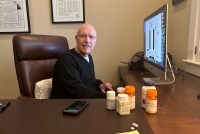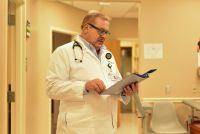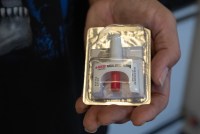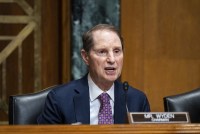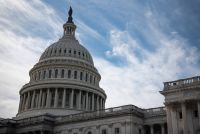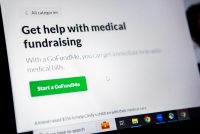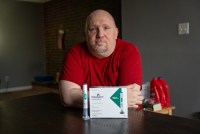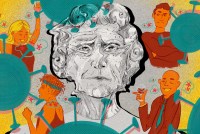Latest KFF Health News Stories
Patients See First Savings From Biden’s Drug Price Push, as Pharma Lines Up Its Lawyers
A restructuring of the Medicare drug benefit has wiped out big drug bills for people who need expensive medicines. But the legal battle over drug negotiations means uncertainty over long-term savings.
Southern Lawmakers Rethink Long-Standing Opposition to Medicaid Expansion
While many Republican state lawmakers remain firmly against Medicaid expansion, some key leaders in holdout states are showing a willingness to reconsider. Public opinion, financial incentives, and widening health care needs make resistance harder.
What the Health? From KFF Health News: Biden Wins Early Court Test for Medicare Drug Negotiations
A federal district court judge dismissed a lawsuit attempting to invalidate the Biden administration’s Medicare prescription-drug price negotiation program. But the suit turned on a technicality, and several more court challenges are in the pipeline. Meanwhile, health policy pops up in Super Bowl ads, as Congress approaches yet another funding deadline. Alice Miranda Ollstein of Politico, Lauren Weber of The Washington Post, and Rachel Cohrs of Stat join KFF Health News’ Julie Rovner to discuss these issues and more. Plus, for “extra credit,” the panelists suggest health policy stories they read this week they think you should read, too.
States Get in on the Prior Authorization Crackdown
Last month, my colleague Lauren Sausser told you about the Biden administration’s crackdown on insurance plans’ prior authorization policies, with new rules for certain health plans participating in federal programs such as Medicare Advantage or the Affordable Care Act marketplace. States are getting in on the action, too. Prior authorization, sometimes called pre-certification, requires patients […]
Nuevas normas de elegibilidad son un alivio financiero para casi 2 millones de personas en Medi-Cal
Este grupo se equiparará a los aproximadamente 12 millones de otros beneficiarios que no tienen límites de activos.
Early Detection May Help Kentucky Tamp Down Its Lung Cancer Crisis
After a decade of work, a Kentucky program launched to diagnose lung cancer earlier is beginning to change the prognosis for residents by catching tumors when they’re more treatable.
New Eligibility Rules Are a Financial Salve for Nearly 2 Million on Medi-Cal
Nearly 2 million Medi-Cal enrollees, mainly people who are aged, disabled, or in long-term care, can now accumulate savings and property without limitations and still qualify for the state’s health insurance program for low-income residents. They join an additional roughly 12 million enrollees who already had no asset limits.
Watch: The Feds Reexamine Covid Protocols. Here’s Why You Should Care.
KFF Health News’ Céline Gounder explains the “five-day rule” on covid safety, how guidelines and testing have evolved, and how best to protect yourself and others.
The No Surprises Act Comes With Some Surprises
The No Surprises Act, the landmark law intended to protect patients from surprise out-of-network medical bills, has come with, well, some surprises. A little more than two years after it took effect, there’s good and bad news about how it’s working. First, it’s important to note that the law has successfully protected millions of patients […]
California Prison Drug Overdoses Surge Again After Early Treatment Success
Drug overdose deaths in California state prisons rebounded to near record levels last year, a big setback for corrections officials who thought they were on the right track with medication-assisted treatment efforts. Prison officials and attorneys representing prisoners blame fentanyl.
For the Love of Health Care and Health Policy
KFF Health News shares the crème de la crème of reader-submitted health policy valentines. Two of our favorites melted our hearts and inspired original illustrations.
Washington intenta ponerse al día con el uso de la inteligencia artificial en el sector de salud
El impacto de la IA en el sector de salud ya es generalizado. La Administración de Alimentos y Medicamentos ha aprobado unos 692 productos de inteligencia artificial.
In Fight Over Medicare Payments, the Hospital Lobby Shows Its Strength
Medicare pays hospitals about double what it pays other providers for the same services. The hospital lobby is fighting hard to make sure a switch to “site-neutral payments” doesn’t become law.
‘Behind the Times’: Washington Tries to Catch Up With AI’s Use in Health Care
Lawmakers and regulators are trying to understand how AI is changing health care and how it should be regulated. The industry fears overreach.
¿Ofrecer vivienda gratis es atención médica? Programas de Medicaid dicen que sí
Estados están invirtiendo miles de millones de dólares en un experimento de atención médica de alto riesgo: utilizar fondos ya escasos de seguros de salud públicos para proporcionar vivienda a los estadounidenses más pobres y enfermos.
GoFundMe, ¿realmente ayuda a pagar facturas médicas?
Incluso defensores de pacientes y personal del área de ayuda financiera en hospitales recomiendan iniciar una sesión en GoFundMe como una alternativa a terminar con una cuenta en una agencia de cobros.
States Target Health Insurers’ ‘Prior Authorization’ Red Tape
Doctors, patients, and hospitals have railed for years about the prior authorization processes that health insurers use to decide whether they’ll pay for patients’ drugs or medical procedures. The Biden administration announced a crackdown in January, but some state lawmakers are looking to go further.
GoFundMe Has Become a Health Care Utility
Resorting to crowdfunding to pay medical bills has become so routine, in some cases health professionals recommend it.
Senators Weigh Whether Health Care AI Needs a Leash
The Senate Finance Committee contemplated the future yesterday: artificial intelligence and its potential applications to health care. And it turns out the future looks an awful lot like the past and present: Democrats want regulations. And the industry wants money. “There are a lot of reasons to be optimistic,” Finance Committee Chair Ron Wyden (D-Ore.) […]
Do We Simply Not Care About Old People?
Recently, thousands of older Americans have been dying weekly of covid. But most Americans aren’t wearing masks in public, a move that could prevent infections. Many at-risk seniors aren’t getting antiviral therapies, and older adults in nursing homes aren’t getting vaccines. Why?



